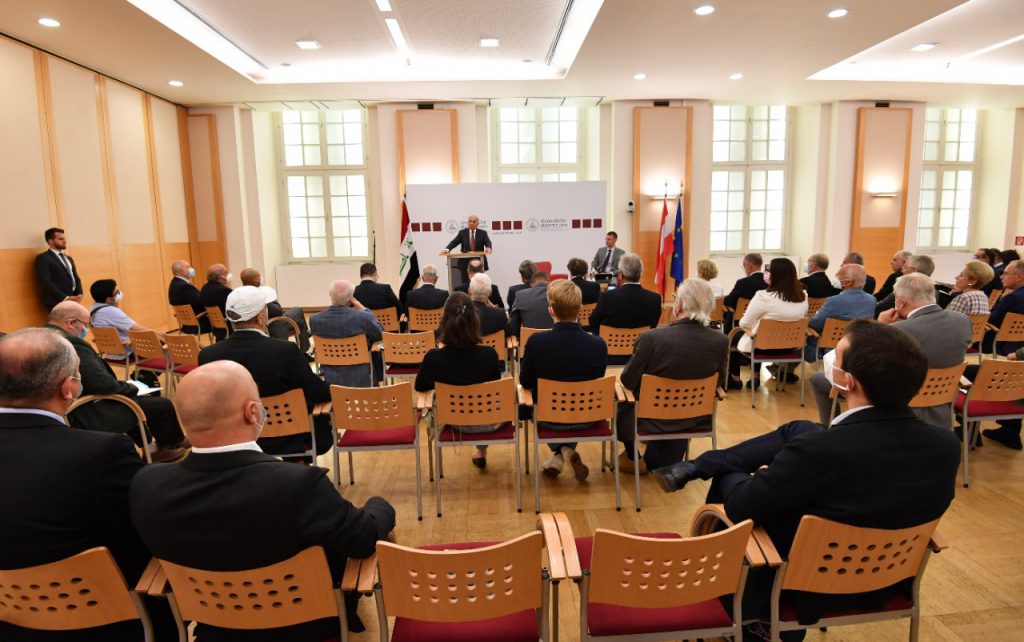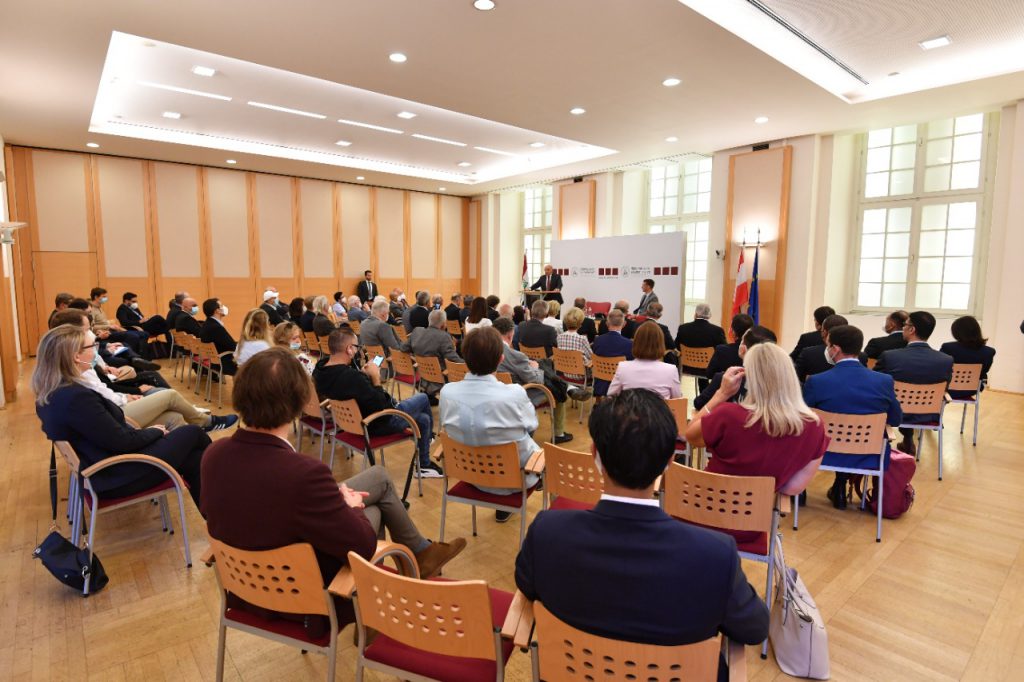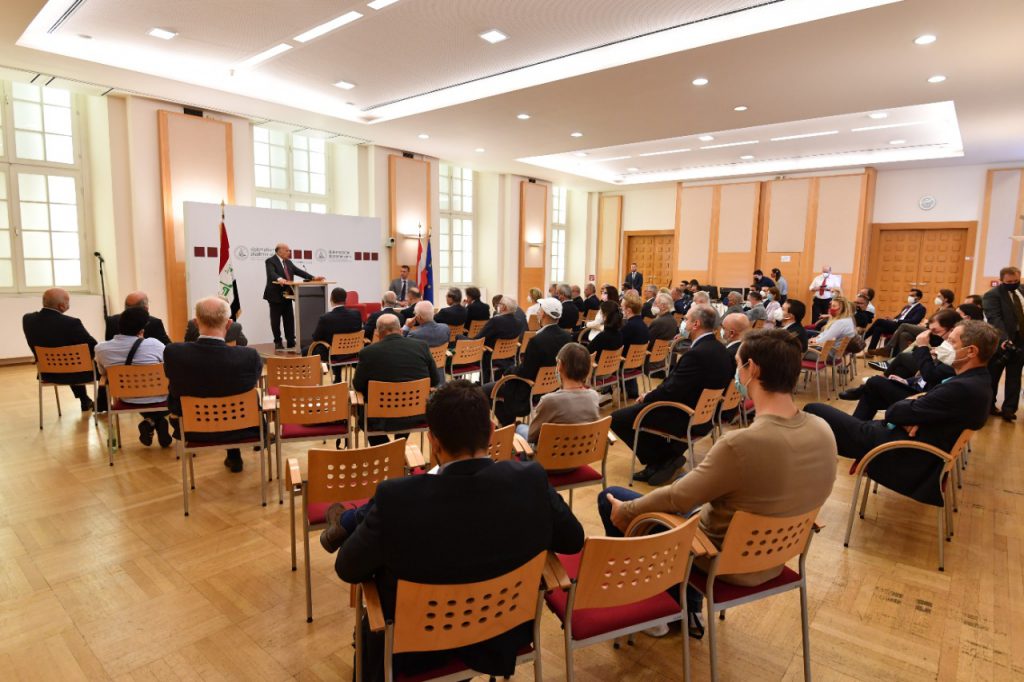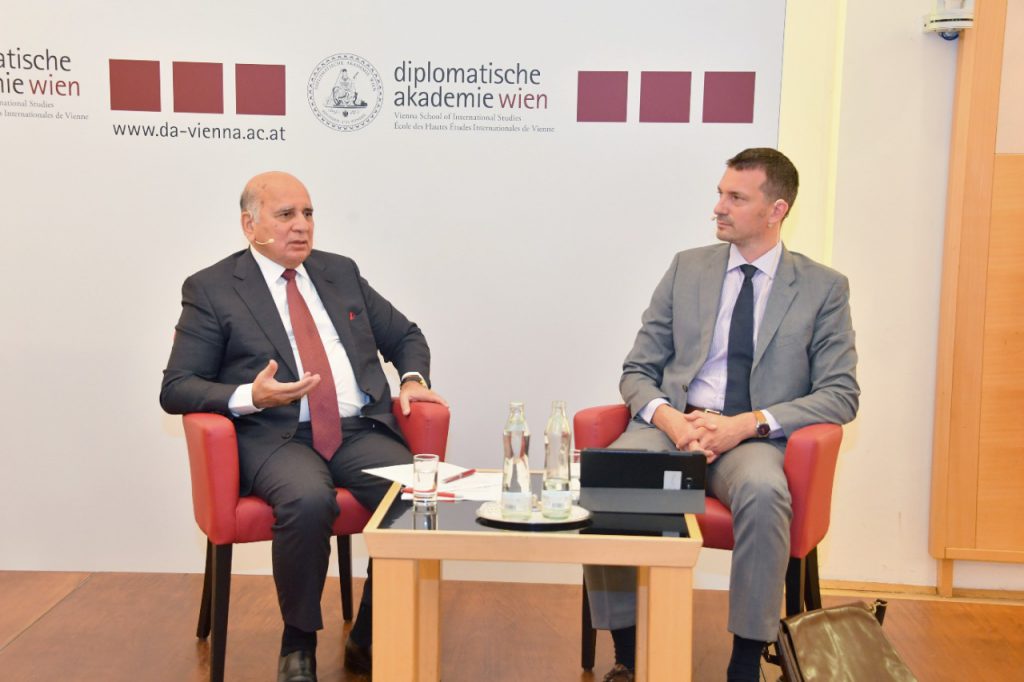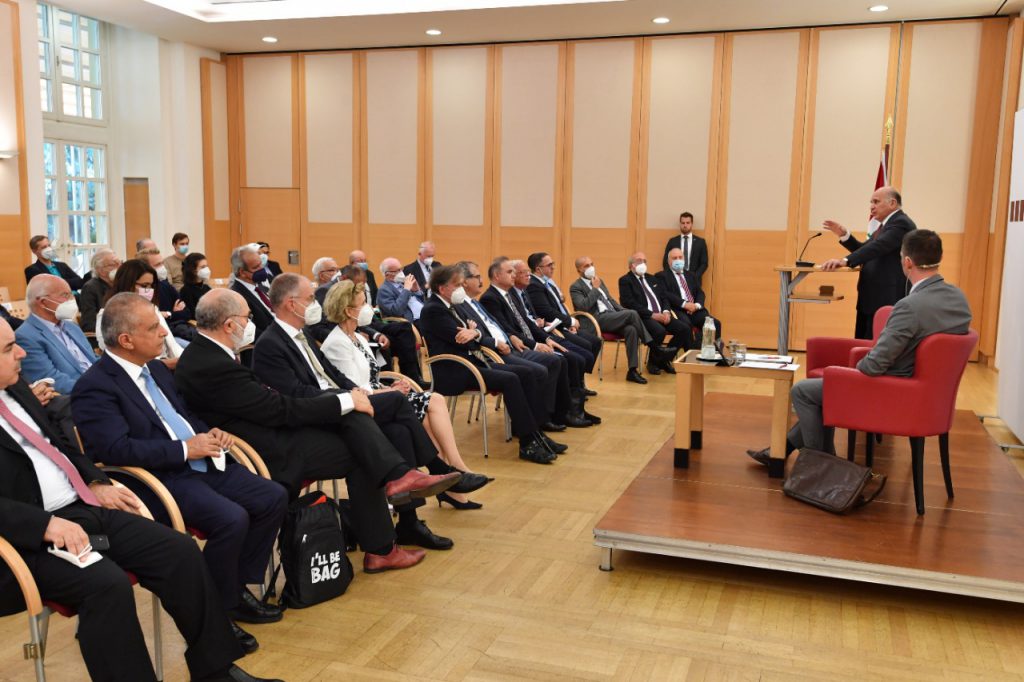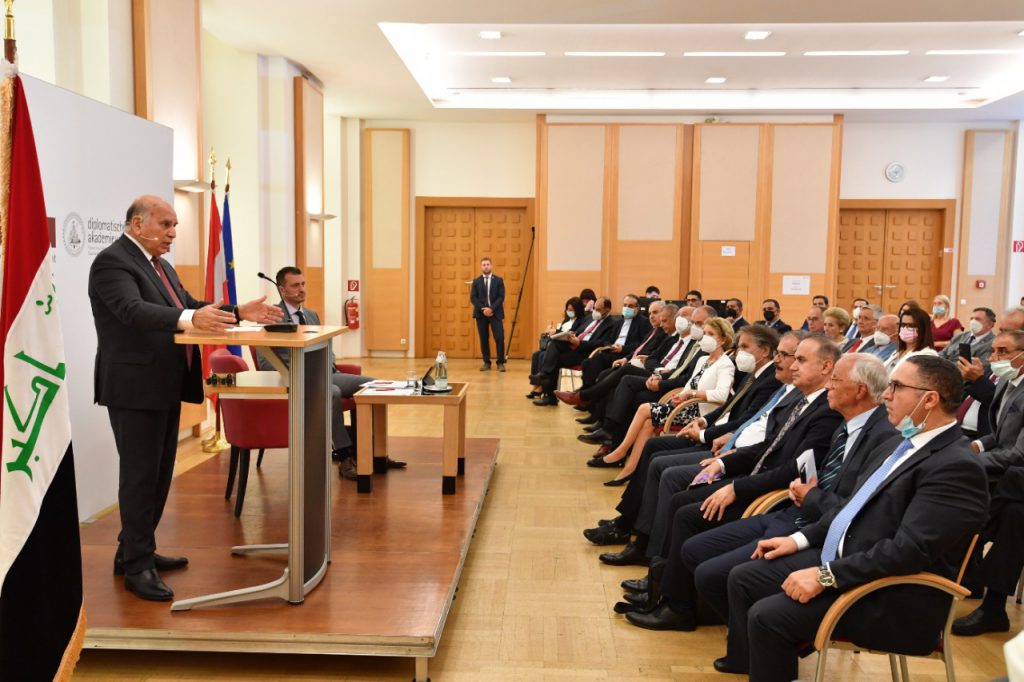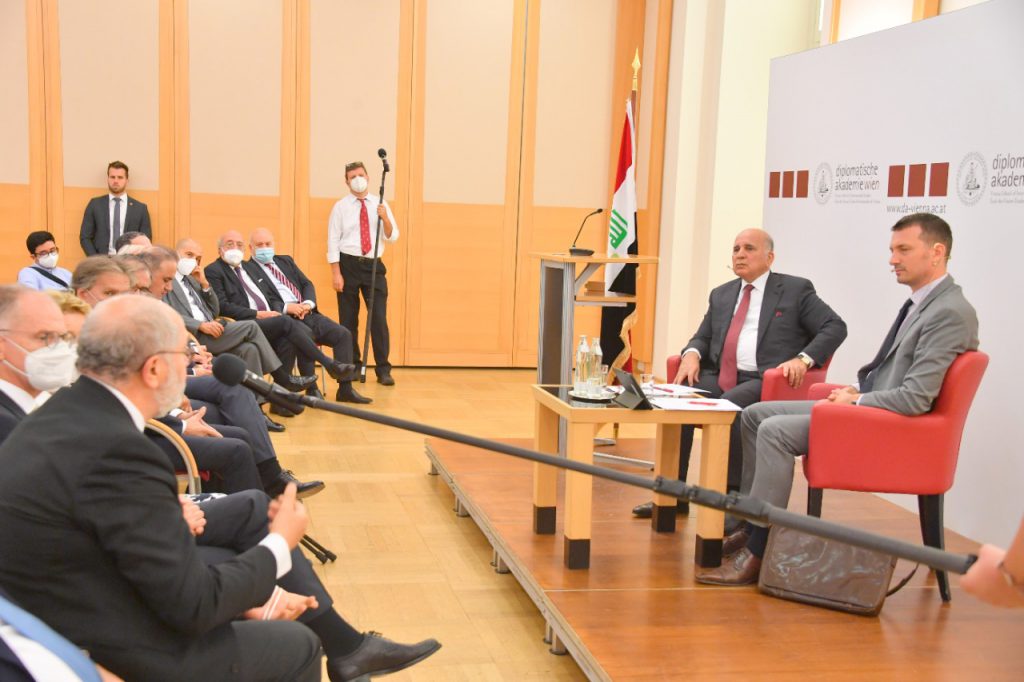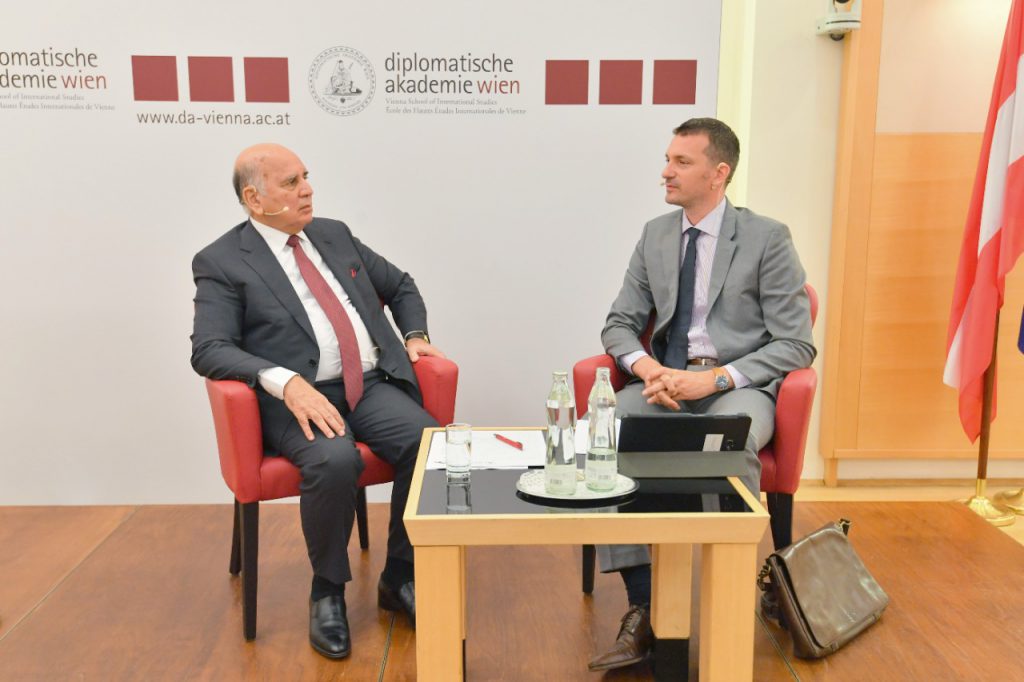Foreign Minister: The Vision of Iraqi government to 0pen Channels for Regional Dialogue and Understanding on Basis of Cooperation and Partnerships that Serve Interest of Iraq and its Regional neighbouring countries
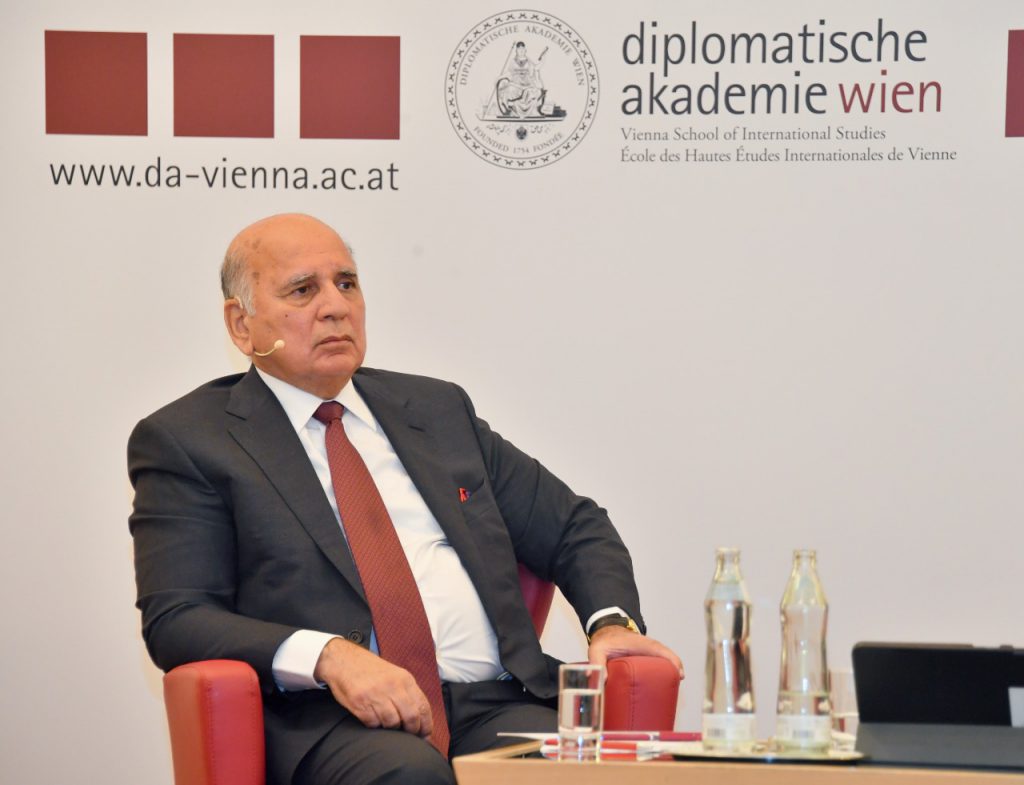
Following welcoming speech, the Minister touched on the political and security repercussions in Iraq and the Middle East after 2003, and the efforts made by the Iraqi army and security forces and the international coalition forces to combat the remnants of the terrorist “ISIS”, which is a product of political changes in Iraq and some States of the region, and the transition to free democratic practice which was rejected by some regional and local parties affected by the democratic transformation. This led to the entry of al-Qaeda and “ISIS” into Iraq after 2004, leading to a sectarian conflict in Iraq. As a result, ISIS was able to Controlling a number of provinces in western and Northern Iraq and reached the outskirts of the Kurdistan region and the capital, Baghdad, pointing to the efforts of the Iraqi forces to stand up against terrorism with the help of the international coalition forces and other countries, and the Iraqi government is currently working to achieve security and stability through the strategic dialogue between Iraq And the United States of America to downsize combat troops and keep military advisors to train Iraqi forces and exchange experiences and security information.
The Minister stressed the Iraqi government’s vision to work in two directions, the first focuses on developing a strategic security plan to confront the terrorist ISIS, and the second is reflected in opening channels for regional dialogue and understanding based on cooperation and partnerships that serve the interests of Iraq and the countries of its regional neighbours.
the Minister referred to the successes achieved by the Iraqi government in this tendency through the holding of the Baghdad Conference for Cooperation and Partnership on 28/8/2021, which had wide participation by the regional neighboring countries, and brotherly and friendly countries, where the conference came out with important recommendations embodied in the Baghdad Summit Declaration, Which is the result of the balanced policy pursued by Iraq and Iraqi diplomacy with neighboring countries not to privilege any party over another, and to work for the interest of all parties, which will result in the interest of Iraq in terms of achieving security, stability and economic development, and the interest of the peoples of the region with which the Iraqi people have deep historical relations represented by borders, culture and religion.
He also touched on the strained relations between the United States and Iran, and between Iran and Saudi Arabia, and the role of Iraq in convergence of views between these parties to resolving the outstanding problems between them, Where Iraq’s policy has not been a policy of courtesy, but rather a policy of negotiation, dialogue, and discussions to avoid political and military conflict.
The Minister gave a brief overview of Iraq’s historical relations with neighboring countries, including Iran and Turkey, and the Turkish intervention in northern Iraq to pursue the Turkish Kurdistan Workers’ Party (PKK), and how the Iraqi government’s dealing with such issues through the use of a right track policy and not a policy of reaction in terms of relying on the dialogue table to solve problems, because Iraq seeks to achieve security, stability and peace at home and abroad after a significant decline in the past years, and after Baghdad transformed the tendency of conflict into the tendency of constructive dialogue, so the participants in the Baghdad Conference unanimously supported Iraq in all fields, including holding free and fair elections in which all the Iraqi spectrum is represented and with international, European and Arab monitoring to ensure their integrity.
